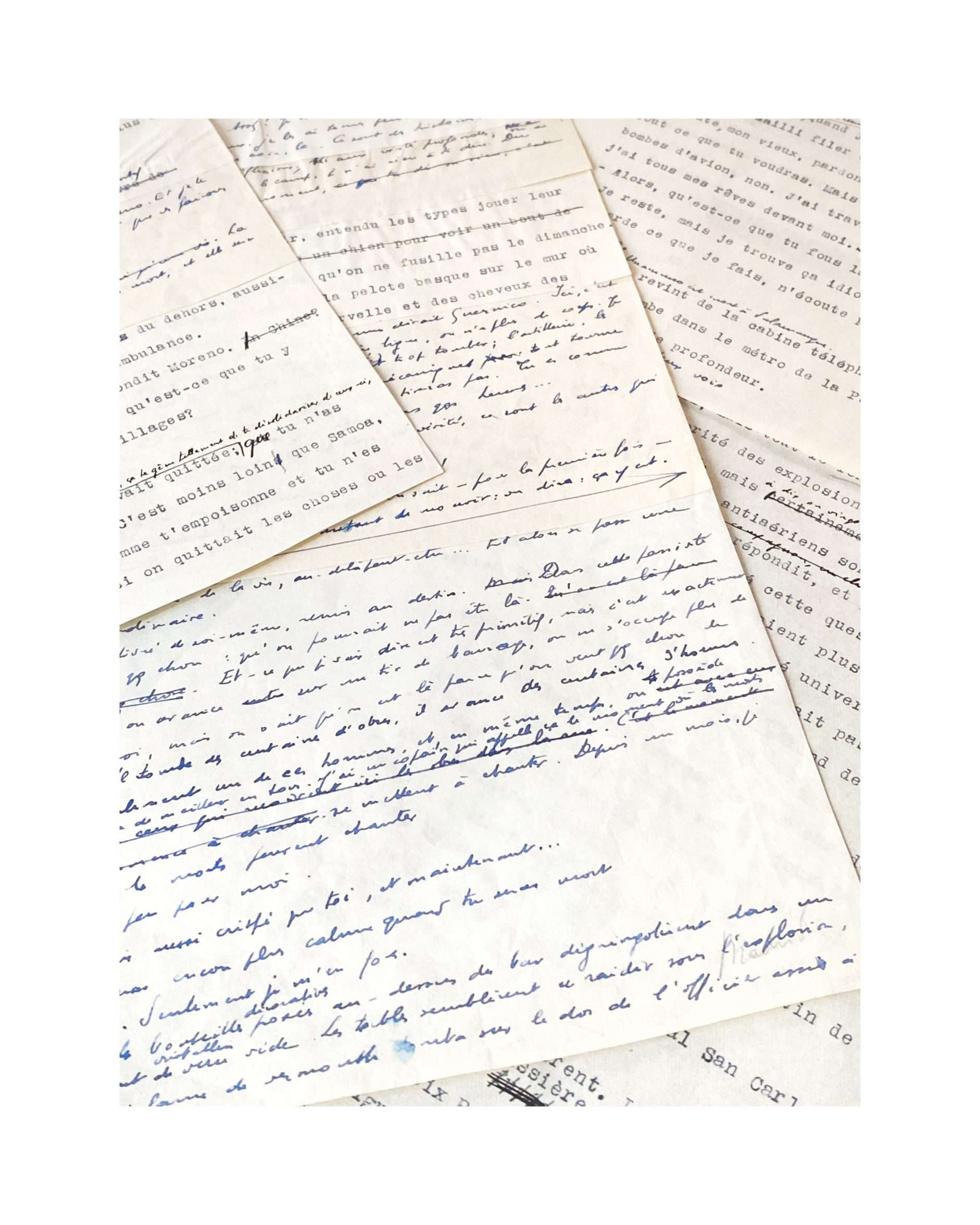MALRAUX, André (1901-1976)
Typescript with autograph corrections
N.p [1937], 5 ff. 1/4 in-4
“I saw guys playing Basque pelota on the wall where the pieces of brains and hair of the prisoners were still hanging”
Fact sheet
MALRAUX, André (1901-1976)
Typescript with autograph corrections
N.p [1937], 5 ff. 1/4 in-4
Important corrections with collage
Extract from the manuscript of his novel L’Espoir which was published in December 1937 by Gallimard. The text is taken from the second part of the novel, Le Manzanarès in the chapter entitled Sang de gauche, recounting the bombing of Madrid by the nationalists during the Spanish Civil War.
La foule n’était pas prises par la peur des fascistes, mais par l’épouvante d’un cataclysme ; et c’était bien un cataclysme, car la question de « se rendre » ne se posait pas plus que celle de se rendre à un tremblement de terre. Dans un fracas de foudre, les verres sautèrent […].
Suit un dialogue intense entre Malraux et un compagnon de Moreno ; J’ai vu des types jouer à la pelote basque sur le mur où étaient encore les morceaux de cervelle et les cheveux des prisonniers. Je n’avais pas d’âme, comme dirait Guernico. Ici, c’est curieux, c’est le contraire : après dix jours de première ligne, on n’a plus de corps. Je veux dire, on est un suicidé […]. On est de l’autre côté de la vie, au-delà peut-être…Et alors se passe une chose extraordinaire. On est délivré de soi-même, remis au destin […].
L’Espoir recounts the important events of the beginning of the Spanish Civil War, from the Franco military putsch of July 18, 1936 to the Battle of Guadalajara in March 1937, where the Republicans were victorious. Malraux plays with the limits of genres, the novel remaining, deliberately unclassifiable, out of the norm. War is omnipresent and is the central theme of the novel. It involves suffering, wounds, violence, death, fear, despair finally hope (which appears in the novel when everything goes wrong, when violence and absurdity triumph). Malraux describes the horror vividly, hotly, without detour.
